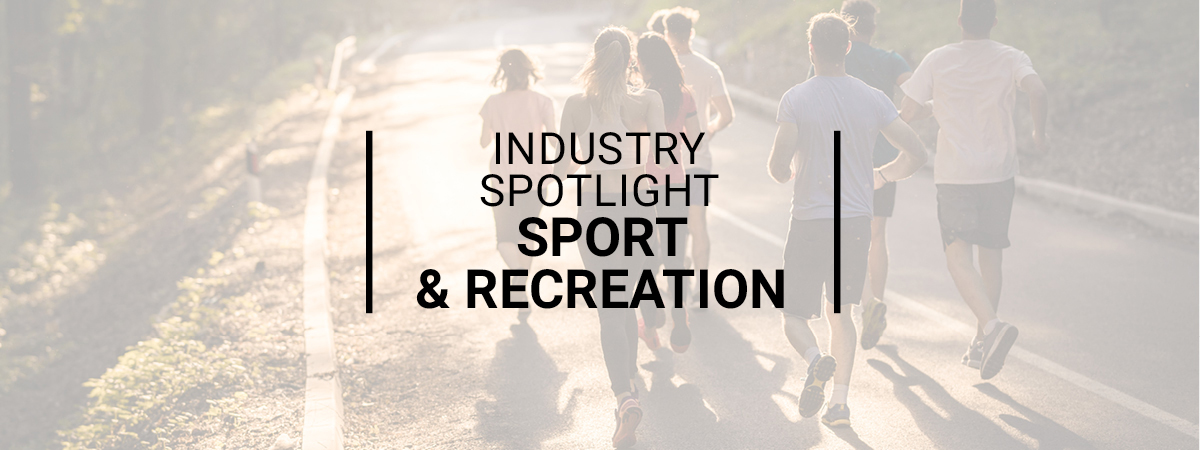Rigorous recruitment processes and a greater focus on diversity are reshaping the entire sport and recreation industry. As the country gears up for the Gold Coast Commonwealth Games in April - and both the men’s and women’s AFL season this month - how are these sporting bodies attracting top talent and keeping the best people on their team?
The latest data from SEEK Employment Trends shows job ads for the sport and recreation industry increased by 2% year-on-year in February and the average advertised salary was $64,887. For the three-month period of December to February, coaching and instruction roles saw the greatest lift with an increase of 20% year-on-year. Management roles grew by 12% over the same period and fitness and personal training was up by 4%
Going for gold
The entire country is gearing up for its biggest sporting event of the decade when the Gold Coast 2018 Commonwealth Games (GC2018) begins on April 4. More than 6,600 athletes and team officials from 70 nations will be competing in 18 sports and seven para-sports and over one million tickets have been sold for the event.
The recruitment team at Gold Coast 2018 Commonwealth Games Corporation (GOLDOC), the organisation charged with delivering the event, has been working almost as hard as the athletes in the lead up to the games. At its peak, GOLDOC will employ more than 1,600 people and will deliver the Games with the support of 15,000 volunteers, known as ‘Games Shapers’.
Jessica Platts, Head of Workforce at GOLDOC, says a wide-ranging selection process has ensured the right people are in the right jobs.
“This includes employees addressing selection criteria through job applications, interviews, psychometric testing along with comprehensive reference and security checks,” she says.
The recruitment program has been in place since 2012. Almost 1,000 people joined GOLDOC in late 2017 and early 2018 following two recruitment phases delivered in partnership with SEEK. More than 47,000 people also applied to volunteer at GC2018.
Platts says 21,000 were interviewed through the Volunteer Selection Centre, with 15,000 accepting roles.
“Another 45,000 contractors will be working alongside staff and volunteers,” she says.
While the recruitment process has been thorough, the scale and prestige of the event has ensured an abundance of candidates.
“Being part of GC2018 is a once-in-a-lifetime opportunity to further your skills and deliver a major global event,” says Platts.
“It can lead to future work in a wide range of sectors, including major events and the commercial sector.”
Kicking goals for diversity
Like most industries, diversity is a hot topic in sport.
Paul Bruce, Managing Director at sports recruitment company Left Field Sports Solutions, says more sporting organisations are looking to recruit employees who represent the breadth of their fan base.
“Sporting associations are casting the net much wider today,” he says. “They are looking for the best person for the job and work environments are much more inclusive.”
The AFL is a great example. The 2018 season kicks off this month and the league’s strong workforce presence across the country is key to its success. The AFL has a number of programs in place to enhance diversity, such as AFL Victoria's Multicultural Program, which assists migrant and refugee communities to access football. The inaugural season of AFL Women’s league last year also signalled a clear commitment to gender diversity in sport.
Sarah Fair, AFL’s General Manager People, says that while representation from diverse groups is important, it’s only part of the story.
“The face of Australia is changing and if we want to continue to be the number one sports and entertainment business, we know we need to change with it. We want the AFL to be for everyone, no matter who they are or where they are from.”
A changing culture
To ensure real change is achieved, the AFL has focused on its culture.
“It’s about creating an inclusive culture where our people feel they can be themselves, where they have a strong sense of belonging and feel that their differences are valued. I believe the majority of diversity strategies fail because they don’t get this right.”
Fair says inclusive practices must be embedded in everything the AFL does.
“This starts with recruitment and our processes are inclusive - we invite people from across the business to be part of the decision-making to ensure we tackle biases,” she says.
“We also offer great flexible work options for all our people, so they can ‘play the day their way’, whether it be working remotely, starting at different times of the day or simply wearing clothing that express who they are. Our flexible working is about encouraging our people to work in a way that brings out their best.”
AFL conducts also diversity and bias training for all new team members.
“This helps them understand from day one who we are and what we stand for,” says Fair./p>
“We also conduct regular cultural check-in sessions to actively seek open and honest feedback about our culture and how we can continue to build on and improve the experience for our people.”

